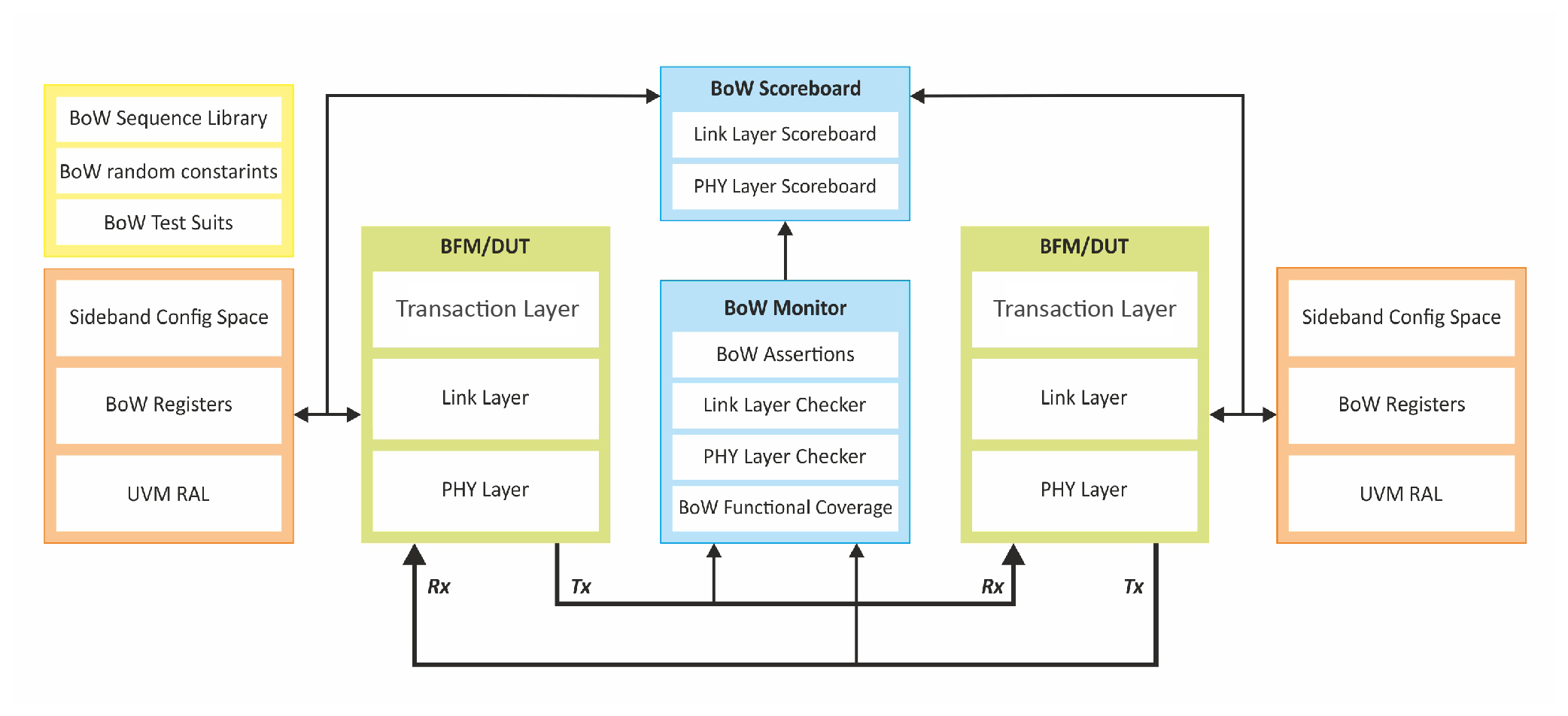BoW Verification IP
Truechip's BoW Verification IP provides an effective & efficient way to verify the BoW components of an IP or SoC. Truechip's VIP is fully compliant with BoW specifications. The VIP is lightweight with easy plug-and-play components so that there is no hit on the design cycle time.
Key Benefits
- Available in native System Verilog (UVM/OVM/ VMM) and Verilog
- Unique development methodology to ensure the highest levels of quality
- Availability of Compliance & Regression Test Suites
- 24X5 customer support
- Unique and customizable licensing models
- Exhaustive set of assertions and coverage points with connectivity examples for all the components
- Consistency of interface, installation, operation, and documentation across all our VIPs
- Provide complete solutions and easy integration in IP and SoC environment
Features
- Support AXI5-Lite D-64 Interface Profile
- Support AXI5-Lite D-32 Interface Profile
- Support PIPE interface PHY to upper layers(System Interface)
- Support LPIF interface PHY to upper layers(System Interface)
- Support ODSA Transaction and Link Layer Specification for BoW Interfaces
- Supports Error Detection and Correction of TLP using ECC
- Efficient design for maximum die-to-die throughput and link data integrity
- Supports all BoW modes based on configuration
- Supports for 1, 2, and 4 PHY slices based on configuration
- Supports different Fragment sizes based on configuration
- Supports lane Redundancy for single-lane and Double lane
- Supports Loopback for Unidirectional Link and Bidirectional Link
- Support random reset for all layers of Bow
- Support trainings in the data link layer
- Supports Flow Control for a Transaction layer
- Support virtual wire for the transaction layer
- Functional coverage for complete BoW features
- Monitors detect and notify the testbench of significant events such as transactions, warnings, timing, and protocol violations
Deliverables
- BoW Tx/Rx/BFM/Agent
- BoW Layers Monitor
- BoW Scoreboard
- Testbench Configurations
- Test Suite (Available in Source code)
- Basic and Directed Protocol Tests
- Random Tests and Error Scenario Tests
- Assertions & Cover Point Tests
- Integration Guide, User Manual, and Release Notes


